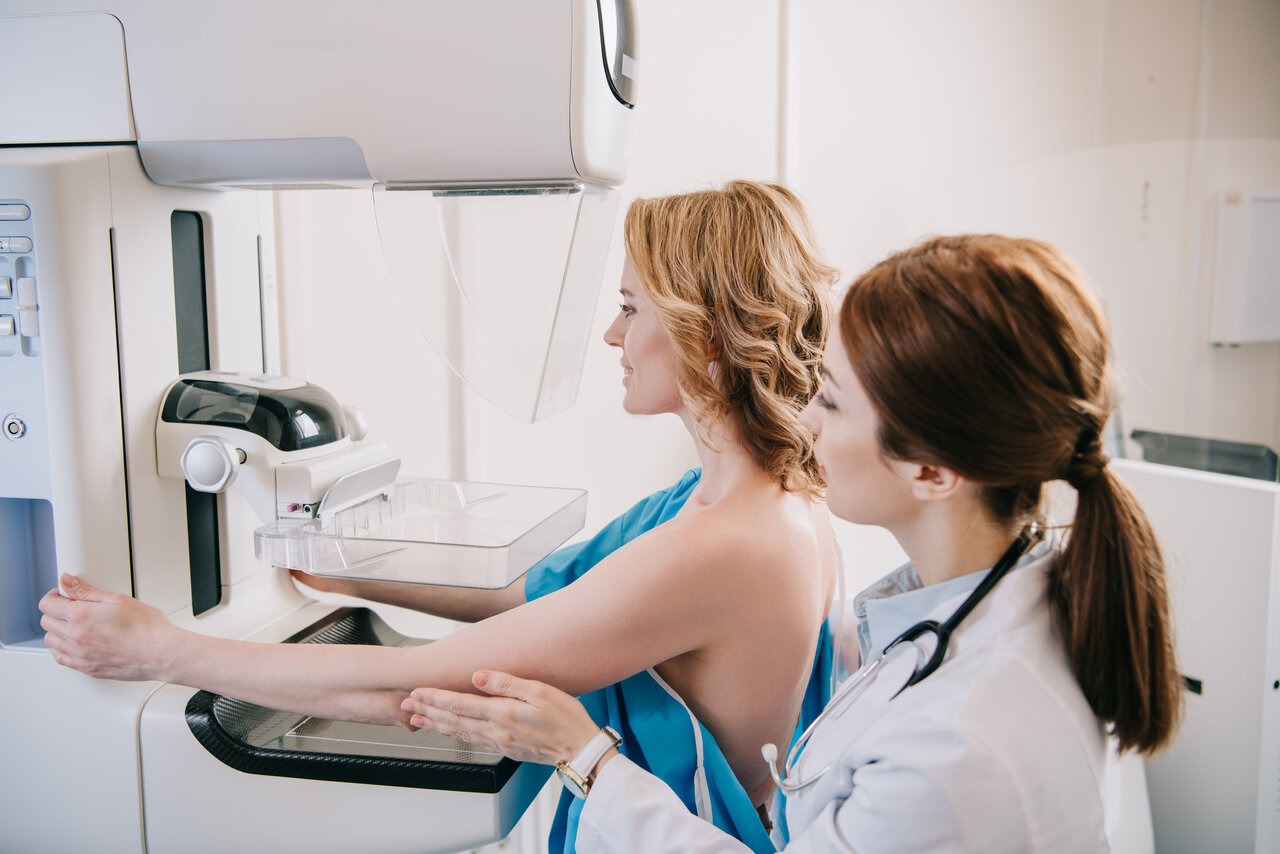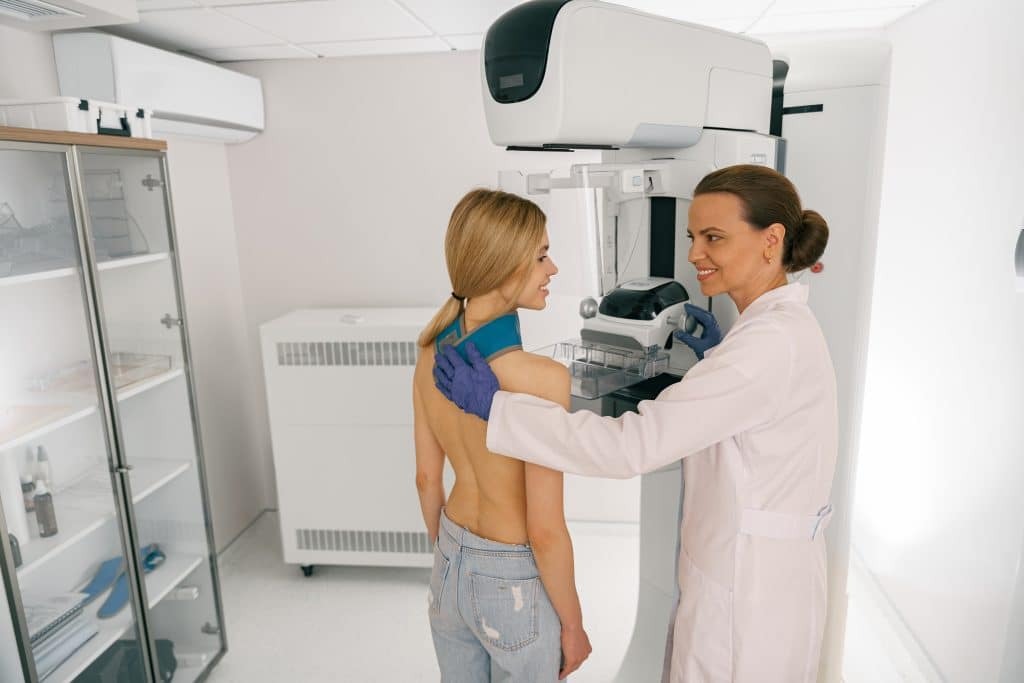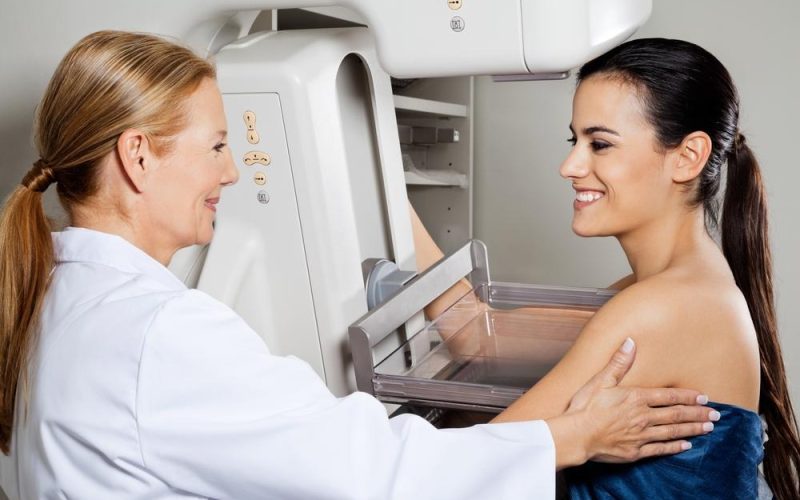Mia’s artificial intelligence “Mia” diagnosed 11 women with breast cancer that escaped doctors,
this AI in breast cancer analyzed the mammograms of more than 10,000 women and was able to successfully identify all those who had symptoms. According to prospective data that was published in Nature Medicine, the Mia tool could considerably raise early breast cancer detection rates in a European healthcare system by as much as 13%.
The Role of AI in Breast Cancer Early Detection
The World Health Organisation claims that early cancer detection through screening programs lowers the need for intense treatment and the number of breast cancer fatalities. It is anticipated that approximately 20% of breast cancers may go undiagnosed at this time, despite current efforts.

Enhancing Diagnostic Accuracy with AI
Traditional methods of breast cancer diagnosis rely heavily on human interpretation, which can be prone to errors and variability. AI-powered diagnostic tools offer a more standardized approach, minimizing discrepancies and ensuring consistency in diagnosis. This can lead to earlier detection of breast cancer and more effective treatment strategies.
Utilizing AI for Personalized Treatment
Beyond diagnosis, AI can also assist in tailoring treatment plans based on individual patient characteristics and tumor profiles. By analyzing patient data and medical records, AI algorithms can recommend personalized treatment options that optimize outcomes and minimize side effects.
Challenges and Limitations of AI in Diagnosis
While AI holds great promise in improving breast cancer diagnosis, it is not without its challenges. One significant concern is the need for extensive data sets for training AI models, which may not always be readily available. Additionally, there are ethical considerations surrounding patient privacy and data security.
Addressing Ethical and Regulatory Concerns
As AI technologies continue to advance, it is crucial to address ethical and regulatory concerns surrounding their use in healthcare. Safeguarding patient privacy, ensuring transparency in AI algorithms, and maintaining accountability are essential considerations in the integration of AI into breast cancer diagnosis.
The Future of AI in Breast Cancer Diagnosis
Despite challenges, the future of AI use in breast cancer diagnosis looks promising. Continued research and development in AI algorithms, coupled with advancements in imaging technology, are expected to further enhance the capabilities of AI-powered diagnostic tools. Ultimately, AI has the potential to revolutionize breast cancer detection and improve patient outcomes on a global scale.
AI’s Impact on Screening Programs
In addition to aiding individual diagnosis, AI can also play a significant role in population-wide breast cancer screening programs. By automating the analysis of screening mammograms, AI can help healthcare systems identify high-risk individuals and allocate resources more effectively.
AI-Powered Risk Assessment
AI algorithms can analyze various risk factors, including family history, genetic predisposition, and lifestyle factors, to assess an individual’s likelihood of developing breast cancer. This proactive approach allows healthcare providers to implement preventive measures and interventions tailored to each patient’s unique risk profile.
Integration of AI into Clinical Practice
With advancements in AI technology, healthcare providers are increasingly incorporating AI-powered diagnostic tools into clinical practice. From assisting radiologists in interpreting imaging scans to guiding treatment decisions, AI has the potential to streamline workflows and improve patient care outcomes.
Collaboration and Research in AI
Collaboration between healthcare professionals, researchers, and technology experts is paramount in driving forward the field of AI use in breast cancer diagnosis. This collaborative effort serves as the cornerstone for innovation and progress, allowing for the seamless integration of cutting-edge technologies into clinical practice.
By fostering open communication and knowledge sharing, stakeholders can leverage each other’s expertise and experiences to overcome challenges and explore new avenues for advancement. Furthermore, the exchange of data, whether it be clinical data from healthcare providers or research findings from academic institutions, plays a pivotal role in training AI algorithms and refining diagnostic capabilities.

FAQs
1. How does AI assist in breast cancer diagnosis? AI utilizes algorithms to analyze medical imaging scans, such as mammograms, for early signs of breast cancer. By detecting subtle abnormalities, AI can aid healthcare professionals in diagnosing the disease more accurately and efficiently.
2. Is AI more reliable than human interpretation in breast cancer diagnosis? AI-powered diagnostic tools offer a standardized approach to breast cancer diagnosis, minimizing discrepancies and ensuring consistency. While AI can enhance accuracy, human expertise remains crucial in interpreting results and making clinical decisions.
3. What challenges are associated with integrating AI into breast cancer diagnosis? Challenges include the need for extensive data sets to train AI models, ethical considerations regarding patient privacy, and regulatory frameworks governing AI use in healthcare. Overcoming these challenges requires collaboration and adherence to best practices.
4. How does collaboration benefit the development of AI-driven solutions for breast cancer diagnosis? Collaboration between healthcare professionals, researchers, and technology experts facilitates the exchange of knowledge, expertise, and resources. By pooling their efforts, stakeholders can accelerate innovation and improve patient outcomes.
5. What role do patients play in the advancement of AI use in breast cancer diagnosis? Patients are essential stakeholders in the development and adoption of AI-driven solutions. Their participation in clinical trials, feedback on usability, and advocacy for access to innovative technologies contribute to the success of AI initiatives in healthcare.
6. How can healthcare systems ensure the responsible and ethical use of AI in breast cancer diagnosis? Healthcare systems must establish robust protocols for data privacy and security, ensure transparency in AI algorithms, and adhere to regulatory guidelines. Additionally, ongoing education and training are essential to foster ethical practices among healthcare professionals using AI.
Conclusion: Harnessing the Power of AI in Diagnosis
The evolution of AI in breast cancer diagnosis represents a significant advancement in the field of healthcare. The success stories of AI tools like Mia, which have demonstrated prominent accuracy in identifying breast cancer cases that escaped traditional detection methods, shows the transformative potential of AI in early cancer detection.










